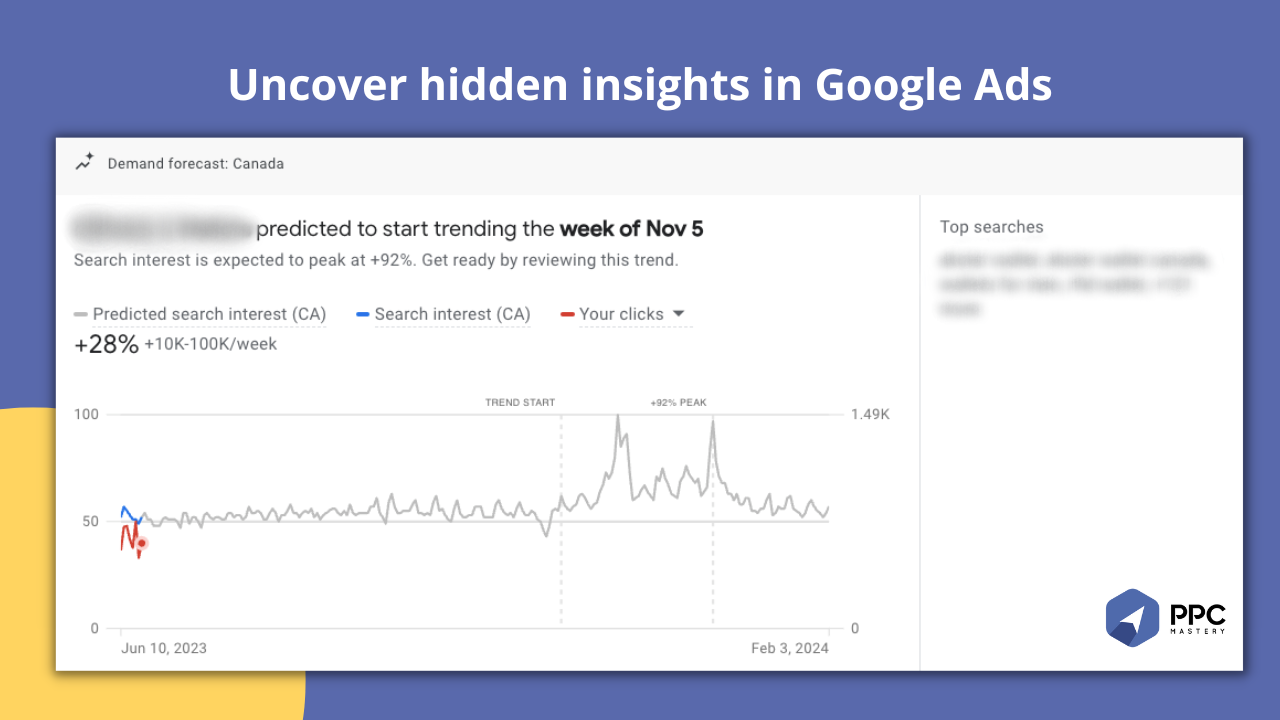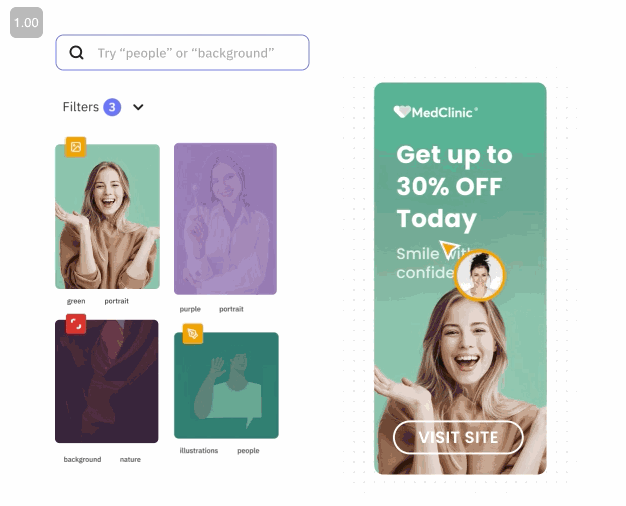
TPE #103: 50 PPC tasks for this Summer (2024 edition)
Jul 29, 2024Read time: 9 minutes
It’s Summer — which means most people are taking some time off (rightly so).
As a result, work slows down a bit.
I also notice it: clients are less responsive and the vibe is a bit more laidback in The PPC Hub.
I love to take advantage of that by doing some of the tasks I normally wouldn’t have the time for.
I created a list of 50 tasks you can do this Summer, in the following categories:
- Audit
- Hygiene
- Learning & research
- New tests
- Preparation
- Reporting
- Tools
- Sales
- Other
I also shared this list last year, but updated and refreshed it so it’s super relevant in 2024.
Let’s dive right in!
Audit
The first section is about auditing your life and accounts. Take one step back to move two steps forward.
1: Do a life audit: are you happy right now?
I build my life intentionally. It’s easy to get caught up in life. Time goes by so fast, and the last thing I want is for life to slip through my fingers. I don’t want to just ‘go with the motions’. I want an awesome life, filled with the things I value.
At least twice per year, I do a life audit to make sure I’m still happy and enjoying the path that I’m on. If I’m not, I change the direction I’m headed towards.
And what better time to do a life audit, than during Summer?
The goal is to take a step back, and ask yourself:
- What is going well in my life?
- What do I dislike about my life?
- Is there anything I’d like to change?
- Do I still like my current job/clients?
- What do I want more of, that I’m currently not doing?
- On average, do I have fun in my days?
If any of the answers dissatisfy you, make the necessary changes and optimizations.
It’s your life — make the most out of it!
Here’s a free guide with the template I use for my own Life Audits!
2: Audit your account.
When work slows down in the Summer, I love to do account audits. There are a few ways you can go about that:
- Audit your own account
- Sell an audit to a client
- Exchange an audit with another specialist
You’ll be surprised how much you can grow when you do an audit of your own account. Or even better: get someone else to audit yours!
Check out this issue of The PPC Edge for our approach to auditing Google Ads accounts.
3: Go through the Insights tab.
The "Insights" tab in Google Ads is a hidden goldmine full of treasures.
Check it frequently to dig for insights:
- Performance trends
- Change history insights
- Location-specific insights
- Search term insights and trends
- Recommendations to apply (not)
- Predicted search interest insights
- Auction insights (Performance Max)
- Audience insights (how they performed)
- Asset insights (performance per audience)
You can find these insights for the entire account, or per individual campaigns.

Hygiene
The next part is about hygiene tasks. You’re probably not doing all of these because you have to prioritize other high-impact tasks. When work slows down in the Summer, I love going through hygiene optimizations that I otherwise didn’t have time for.
4: Go through your search term reports.
This one speaks for itself. We’re sure you're already leveraging your search term reports. But I'd like to challenge you:
Take an even deeper look at your queries. Learn from them. Exclude new terms that you might’ve missed, add new keywords. Report back to your clients. Let your SEO colleagues know about anything you find.
There’s gold hidden in your search term reports if you take the time to go deeper than normal.
5: Go through your placement reports.
Running YouTube and Display campaigns? Go through the placements report. See what you find and exclude anything that’s irrelevant (pro tip: specifically look for kids’ channels).
6: Optimize your extensions (sitelinks etc.).
When work slows down, I love to optimize our extensions (ok ok, assets...). I can keep it short here.
7: Create better video/image ads with tools.
Another PPC task for this Summer: optimize your video and image ads. Use a tool like Creatopy to create new variations in bulk.

8: Work on your Quality Scores.
Quality Scores definitely still matter, but they are often overlooked. Take some time to optimize them this Summer. Pro tip: start with keywords with ‘Below Average’ or ‘Average’ scores of Ad Relevance — those are easiest to improve.
Want an in-depth guide on how to optimize Quality Score? Check it out here.
9: Refresh your Customer Match lists.
When was the last time you updated your Customer Lists in Google Ads? We’re guessing a long time ago. Take some effort to refresh them. Upload different lists and make segmentations of all customers, high-value customers, repeat purchasers etc.

Here are 3 ways to beat your competition with Customer Match.
10: Clean up your product feed.
Are you happy with the quality of your product feed? Do a feed audit and see where you can enrich it with high-quality, relevant data. Start with the most important feed attributes like titles, images and prices, but don’t forget about secondary attributes like colors, materials, GTINs, sizes etc.
11: Clean up non-serving keywords.
How many active keywords do you have in your account, that aren’t getting any impressions? Clean up your keywords and make your account easier to manage.
12: Properly set up Google Merchant Center Next.
Have you really taken the time to properly set up GMC Next, or have you been putting this off because you have other priorities? Optimize your settings like shipping, returns, automatic product improvements, product protection etc.
13: Get your Google Ads certifications (boring).
I hate the Google Ads certifications, but I also know that for some agencies and jobs, you’re required to refresh them every year. Look at when your certifications expire, and take some time to retake the tests this Summer. You don’t want to have to do this in Q4, when it’s the busiest time of the year.
If your job doesn’t require you to get the certifications, don’t even look at them.
Complete waste of time!
Pro tip: ask ChatGPT to take the test for you ;).

Learning & research
In this next part, we’ll look at ways to develop yourself over the Summer by learning something new and researching new opportunities.
14: Take a course on PPC.
The best way we can help you is through our online courses. If you’re interested in taking your skills to the next level, check out our offers at ppcmastery.com.
We’d love to help you become an even better Google Ads Specialist!
If you wanna go all the way, I highly recommend joining The PPC Hub — you'll get access to many exclusive courses to help you master Google Ads.

15: Dive into YouTube advertising.
YouTube Ads are still massively underused, and I think it’s because most specialists just don’t know how to run them. If you want to increase your value as a Google Ads Specialist, freelancer, or agency, mastering YouTube Ads will be a great idea.
16: Learn how to do full-funnel remarketing.
Sometimes, to get the best remarketing results, you need to run campaigns outside of Google Ads. Have you tested remarketing on Meta (Facebook/Instagram etc.)? This tends to work complementary to Google Ads campaigns.
Want a breakdown of a full-funnel Google Ads remarketing strategy? Check it out here.
17: Learn how to use ChatGPT for Google Ads.
We all know ChatGPT — but are you actively using it for Google Ads? There are a lot of unique use cases: improving your RSAs, writing video ad scripts, researching competitors, keywords, drafting campaign setups etc.
The possibilities are endless and mastering ChatGPT (aka writing better prompts) will help you a lot as a Google Ads Specialist.
Recently, we hosted 'The PPC Hub AI Week' for members of The PPC Hub with workshops from AI Experts. Here's a recap that will inspire you on how to use AI for Google Ads!
18: Research AI tools to optimize workflow.
The AI world is much bigger than just ChatGPT. There’s a tool for just about anything, and a lot of it is free.
Here's a database with lots of free and paid AI tools.
19: Do extensive competitor research.
When was the last time you did competitor research? This is so valuable to do, even if you’re already working with a client for a long time. Find out what your competitors are doing that you’re not, and improve your entire online marketing strategy.
A great place to start: Google’s Ad Transparency Center (see all competitor ads for free).
20: Learn how to write Google Ads scripts.
Scripts can give you an unfair advantage, as they can lead to better insights and optimizations. Writing them is hard, because you need to understand Javascript code. However, ChatGPT can help you with that.
Here’s a list of our favorite pMax scripts, and links to download them.
21: Learn how to use Google Tag Manager.
Mastering Google Tag Manager will not only increase your value as a PPC Expert, it will also make your life a whole lot easier. If you’re not using GTM a lot yet, now is the time to start learning how to use it!
If you want to master advanced conversion tracking and lay the foundation for success with Google Ads, check out our Conversion Tracking Mastery Course!
22: Learn how to use Google Analytics 4.
The same applies to GA4. We all hated the shift from Universal Analytics to Google Analytics 4, but there’s nothing we could do about it and now all we have is GA4. Have you taken time to truly master the platform, or are you still complaining about how UA was so much better?
Get over it and learn how to use GA4! :)
23: Read through official Google documentation.
There is gold hidden in Google’s official documentation, but most people aren’t willing to sift through it. A great place to start: Google’s new features and announcements page. Whenever they put out a new update, read the official documentation.
You’ll be surprised how much you can learn from it.
24: Read official GDPR documentation.
This is boring, but so valuable. If you understand GDPR and privacy regulations on a deep level, you can be a better advisor and sparring partner to your clients.
I won’t pretend I completely understand GDPR and its implications… But it’s great to read up on, this Summer.

New tests
In this section, I want to inspire you with a series of tests you can run in your accounts. Remember: never stop testing! :)
25: Set up an advanced conversion tracking technique (profit, OCT etc.).
Basic tracking setups are no longer sufficient. If you want to take your results to the next level, you need to implement advanced tracking techniques like:
- Offline Conversion Tracking for Lead Gen
- Profit Tracking for Ecom
- Serverside Tagging
Whoever has the most high-quality data, wins.
There’s a LOT that goes into proper conversion tracking. If you want to upgrade your tracking skills with the latest techniques, check out this free training we created. It will help you understand and master the entire Google Ads tracking landscape from Rookie to Master.
It’s live up on our YouTube channel.
26: Optimize your ads (write better copy).
Responsive Search Ads have made Google Ads Specialists lazy. Don’t forget to keep testing new ad copy. Pro tip: use ChatGPT to speed up the process!
Here's a free guide to help you set up A/B tests with 'Ad Variations'.
27: Make a list of high-impact tests for H2.
I give you a lot of test ideas in this newsletter, but you need to make a list of tests that will be high-impact for your account(s). So list out everything you can do, and rate them according to the ‘ICE’-framework (Impact, Confidence, Effort). Start with the low-hanging fruit, and then work your way towards tests that potentially have the highest impact.
28: Test Automatically Applied Recommendations (JOKE).
Just for fun: see what happens if you test Google’s AARs. You might be surprised by their impact.
This is a JOKE — do not apply all of them. Here's a free guide to help you understand which AARs are harmless, and which ones are harmful. Check it out here.
29: Dust off Microsoft Ads.
Microsoft Ads generally has around 5-10% of the search market share worldwide. In some countries and demographics is more, some less.
Are you running Microsoft Ads? If not, now is the time to set them up (again). It’s an easy 5-10% revenue uplift with minimal extra effort because you can sync your Google Ads campaigns.
30: Test third-party attribution tools.
Google Ads, just like any other ad platform, LOVES to take credit for every conversion. As you account grows and you start to spend on more channels than just Google, you need to use third-party attribution tools. Play around with them, see how the data is different. Recommendations: Hyros, Rockerbox, Northbeam, TripleWhale (or even GA4 if you want to go the free route).
31: Test new audiences.
Use the Summer time to test new audiences on your upper funnel campaigns. An important learning of something we often see: if you can profitably scale an audience in the low-season, you can easily scale it in the high-season. Test new audiences now, so that you can run them up in Q4 for max growth and profit!
32: Test broad match.
Broad match… You either hate it or love it. Honestly, it’s really good. If you haven’t already, run a few tests. Don’t want to take too much risk? Start with small controlled tests. There’s no way around broad match. Tested it with poor results? Ok sure, then stick to exact and phrase match. But if you haven’t tested it just because you don’t trust Google, then please go ahead and test again.

33: Optimize your landing pages.
What happens after the click is often more important than what happens before the click. Optimize your landing pages. Even a 5% conversion rate uplift can be massive at scale. Just imagine if you’re able to increase your CVR by 10, 20 or even 30%.
34: Test account consolidation.
Since Summer is the low-season for most brands, you have the time to test new account structures. Test with consolidated structures (the benefit: more data at the campaign-level makes it easier for Smart Bidding to optimize for more conversions).

This free guide will help you consolidate your accounts.
35: Optimize your sales funnel.
This goes hand-in-hand with optimizing your landing pages. Do a deep analysis of your entire funnel and see where the weak spots are. Then, optimize wherever you see the biggest dropoffs of users. Again: what happens after the click is often more important than what happens before.
Preparation
In this section, we’ll look at some tasks you can do to prepare yourself and your accounts for better results in the future.
36: Create a roadmap.
There is always a lot that you can do. This makes it easy to get overwhelmed. Create a roadmap of what you want to do and when. Don’t forget to share it with your client. Working with roadmaps causes trust as you have something to refer to. It also helps to keep everything structured.
37: Dive into the new updates.
Every week, Google releases a TON of new updates. Use this Summer to catch up on everything you’ve missed. Here are a few good resources to start:
- Follow Adriaan Dekker on LinkedIn (he shared all the updates daily and in his weekly newsletter).
- Read the official Google Ads "new features & announcements" blog.
- Follow Ginny Marvin on LinkedIn (Ads Product Liaison at Google).
38: Start preparing for Q4 (Black Friday).
Trust me when I say Q4 is around the corner. You really need to start preparing now. Urge your clients to start thinking about their offers and marketing strategy. The last thing you want is to have to do everything a few days before.
We’re about 2 months away from Q4. Just so you know. Start preparing now.
Reporting
In this section, we’ll look at how you can improve your reporting this Summer.
39: Build a Looker Studio dashboard.
I love using Looker Studio dashboards to report to my clients. They’re easy to use for everyone, even with no marketing background. The setup can be a bit technical, but the reward is huge: automated dashboards are the best. Use your time this Summer to build dashboards for yourself and your clients. Pro tip: templatize them so you can use them across multiple accounts.
Did you know members of The PPC Hub get access to our extensive Looker Studio dashboards for Ecom, Lead Gen & SaaS clients? They make data analysis and reporting so much easier and more efficient. Want access? Join The PPC Hub!

40: Optimize your client reports.
As an extension of your Looker Studio dashboards, look at how you can improve your client reports. Can you make them shorter? Have you ever asked your client if they like the report? Experience teaches us that we tend to over-report. Understand who you’re reporting to and what they want to see, and show them nothing more.
CEOs don’t care about impressions, CPCs and Quality Scores. They care about costs, revenue, ROAS.
Marketing managers might be more interested in granular reports with more data points.
Adjust your reports accordingly.
41: Do a deep H1 analysis and report to client.
This is how you can overdeliver to your clients: do a deep H1 analysis of their business and Google Ads results, and send it to them with concrete action steps. What do you see in the data that can help their business move forward? What do you see in the data that you can use to optimize your campaigns further?
Clients love these types of reports. Pro tip: keep them short and to the point, with concrete action steps!
Tools
Let’s look at some tools you can test this Summer.
42: Implement a few scripts.
Scripts are great to help you get more grip on your campaigns. Use this guide to help you get started with 8 high-impact scripts we use in our own accounts.
43: Test a new tool.
Don’t like script? Test out a new tool! Some ideas:
- ProfitMetrics for ecom profit tracking
- Creatopy for image/video ad creation
- ProductHero for Performance-Based Bucketing
Here's a guide with our favorite tools to save time and increase profits.
44: Test Labelizers.
Speaking of Performance-Based Bucketing… You can do that with Labelizers (either paid tools or free scripts).
Check out this guide to help you get started for free.
Sales
In this section, we’ll look at some things you can do to boost your own sales.
45: Write content for LinkedIn (focus on inbound leads).
All of our leads are inbound, mostly via LinkedIn. Write a few pieces of content, and see if you can get some inbound leads too. You have to be persistent and it might be slow at the start, but it will pay off in the end.
46: Reach out to your dream clients.
Have you ever wanted to work with a specific client or business? Reach out to them! If you don’t ask, you’ll never get it.
Check out this story about how I got my first freelance client by reaching out to companies via job boards.
47: Look for a new job.
Are you still enjoying your job? If not, what’s keeping you there? Look for a new job! Life is too short to live on other people’s terms.
You don’t HAVE to pursue a freelancing career and you don’t HAVE to build your own business. If you’re happy working a regular job, that’s completely fine and more power to you. But please, don’t work at a job you hate.
48: Start a side hustle.
Don’t want to leave your job, but looking for some extra income? Start a side hustle! Some ideas:
- Freelancing for a few clients
- Set up an affiliate project
- Test dropshipping
Even if you don't make any money, you will learn a lot!
49: Increase your prices.
Are you a freelancer or agency owner? Ask yourself if you’re happy with your current rates. If not, what’s stopping you from increasing them? Be bold — make a case for why you should make more, and pitch it to current or new clients. Pro tip: make a connection between your increased rate and the improved results they have been getting by working with you. Numbers talk!
Other
The most important tip is in this last section:
50: Take a break!
Don’t forget do take a break. Go on a holiday with family and/or friends. Do some fun stuff. Sit in the sun.
The Summer period is nice to catch up on some of the tasks I added in this newsletter, but it’s also nice to slow down a bit and enjoy life.
So please, take a break and leave your laptop at home!
A final note.
I hope this newsletter was valuable.
And if you're serious about becoming one of the best Google Ads Specialists in the field, consider joining The PPC Hub.
Inside, you'll find lots of courses and resources to master Google Ads, so you can confidently drive results for your clients.
Whether you're a freelancer or working at an agency/in-house, we will help you reach the next level of success for your career.

And that's all for today.
Enjoy the rest of your Summer and see you next week!
Cheers,
Miles (& Bob)


